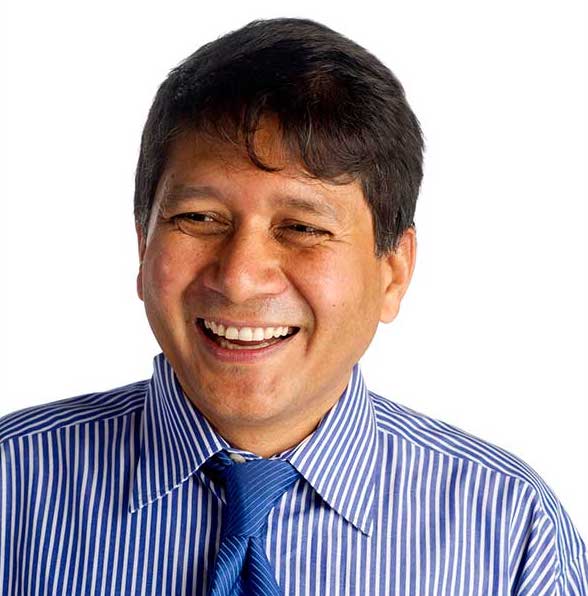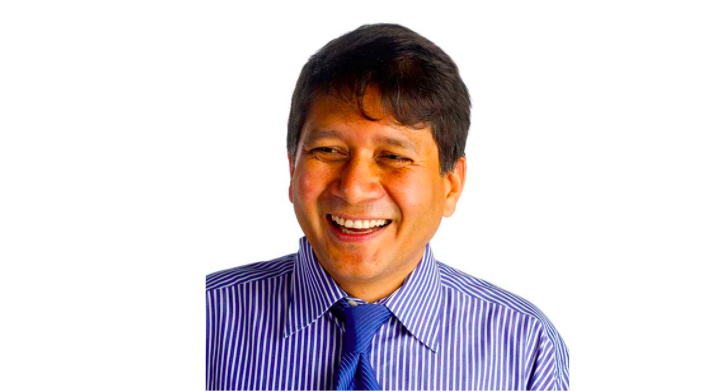Nir Kshetri is a Professor at the University of North Carolina-Greensboro. He also is a researcher at Kobe University. He has authored nine books, one of which has been selected as an Outstanding Academic Title by Choice Magazine. He has also published about 150 articles in various journals incl. Wall Street Journal, Foreign Policy, Scientific American, Bloomberg TV, and many more. In 2018, he gave a TED Talk about the potential roles of cryptocurrencies in fighting poverty. He has provided consulting services to the Asian Development Bank and various United Nations agencies.
Kshetri is the 2nd most cited person and 6th most published author in blockchain research. He was the winner of the IEEE IT professionals Most Popular Paper Award in 2019 and 2018 and Outstanding Contribution in Authorships award in 2019. He also won the Blockchain Connect Conferences Most Influential Blockchain Research Paper in 2019. Nir was the winner of the 2016 Bryan School Senior Research Excellence Award. He was also awarded Pacific Telecommunication Councils Meheroo Jussawalla Research Paper Prize twice (2010 and 2008).
Nir Kshetri
Interview Date : 11th June 2020
My name is Nir Kshetri, and I am a professor here at the University of North Carolina-Greensboro, Bryan School of Business and Economics. I was born in Nepal but moved here to America 21 years ago. I have been working and researching on business and economy in developing countries and what benefit they potentially can gain through technology. I am working with United Nations projects in African regions where we work with governments in some African countries.

Nir Kshetri
We try to implement more technology to their systems to lift their situation for the better by using the 4th revolution technologies. Such Technology integration projects are something that I am passionate about working on. Although my roots are from Nepal, that is not my only focus. I engage in working on projects in all the developing countries all around the world.
Literacy and Connectivity
Many developed countries, international agencies, and private donors are spending a lot of money to help to lift people’s living standards in developing countries. However, Approximately 35% of the money that is supposed to help developing countries is at sea due to corruption, mismanagement, and broker fees. If we would adopt and utilize blockchain in such cases, the 10 dollars that are to be sent to the person in need can receive it with no middlemen or any authority involved.
I do more research on blockchain technology than on cryptocurrencies, and I believe that blockchain has a huge potential to solve a lot of problems in the future, especially in developing countries; As people become more educated and the connectivity improves, the potential is likely to materialize.
In places like America or Japan, for example, where the literacy rate is above 90%. We have access to 4G and soon 5G cellular technologies. In comparison to the poorest developing countries where literacy is low. A large proportion of cellular phone users still rely on 2nd generation networks. Problems like not having your identification documents play an important role in your educational and financial situation.
Extreme Micro-credit Interest rates
If an individual would like to use the service of a non-profit organization that allows people to lend money to low-income individuals in developing countries via the internet, that individual like most people who use those organizations, they do not know how the mechanisms work.
Imagine an individual would like to send 25 dollars to a low-income entrepreneur and farmer in Cambodia through such a service. That individual most likely does not know that the receiver has to pay interest and will not get the whole 25 dollars as intended.
Most of the time, those organizations have field-partners at the other end that can charge 70%~80% interest in the wired amount. This interest rate might sound extreme as the micro-credit interest rates in America are usually between 2~3%. However, in Mexico, it is between 60~90%, and in India, it hits the farmers the hardest as they face interest rates usually higher than 100%. Why that is so is because the banks can do so. There is no functioning governance and law.
To solve this problem, exchanges and other such institutions have to teach people in both ends how to utilize blockchain platforms. As more and more people start getting their identification documents and accounts, they can create mass-adoption of blockchain and use it instead of the non-functioning corrupt systems.
Nepal and Cryptocurrency
Cryptocurrency is currently illegal in Nepal. The central bank of Nepal, Nepal Rashtra Bank, has banned the use of cryptocurrencies and marked it as unauthorized forms of financial tender. I do not see a lot of blockchain projects emerging from Nepal, and neither is the much sight of the workforce working in this field.
To take an example from the neighboring country of India, even though there are around 2 million software developers, only 0.25% know about blockchain technology. That is mainly due to the Indian regime’s unfavorable policies related to cryptocurrencies.
For some reason, Nepal is looking at India as if it is Nepal’s role model. Since the Reserve bank of India had banned cryptocurrency as well, thus the main people working on Blockchain technology did go outside of the country to places that were crypto friendlier. Unfortunately, I do not see any significant blockchain projects emerging in south Asia as of now though India is pushing it forward, and I hope that other countries will follow in a more positive direction.
Connectivity is too Weak for Blockchain to Function
One of the main problems that hinder development in developing countries is connectivity. In developing countries, many people do not have any internet access. A lot of people already have a phone, but mostly the phones are very straightforward operating mobile phones from the 2000s. According to the United Nations “the Least Developed Countries” classification list, 73% of people in those areas have phones, although the latest number from the International Telecommunication Union shows that less than 12% of people have internet access.
If we go a little higher on that list of developing countries, for example, China or India, things are different. These countries have an enormous population with an immense workforce. We see them as countries with huge potential, but still, the reality is less than 47% of the people have internet access.
People might have phones but no internet access, and you cannot use any technology without internet access. In such circumstances, we cannot just go to more advanced solutions like blockchain when more than half the country does not have access to the internet. Blockchain is already very complicated even for the people in developed countries, so we cannot just imagine and think that people who have never seen a computer, and are using mobile phones from the 2000s will understand this concept.
In many countries in African, a reason for why people have their ATM cards is that if you carry money around with you, you will get robbed. However, ATM cards come with pin codes, and those four digits to remember looks like it is harder than we think for people who are not so used to having passwords, pins, and codes. So they cannot remember it, and therefore, many people write the four-digit pin on the back of their ATM cards. So in an environment that makes it so hard for people to remember their four-digit code, we cannot expect them to the blockchain, or cryptocurrency. Those complex concepts are already too hard to understand so you would need excellent connectivity, which is not in those developing areas as of now. That is one of the big challenges right now.
Interviewer , Editor : Lina Kamada
【Disclaimer】
The Article published on this our Homepage are only for the purpose of providing information. This is not intended as a solicitation for cryptocurrency trading. Also, this article is the author’s personal opinions, and this does not represent opinion for the Company BTCBOX co.,Ltd.


